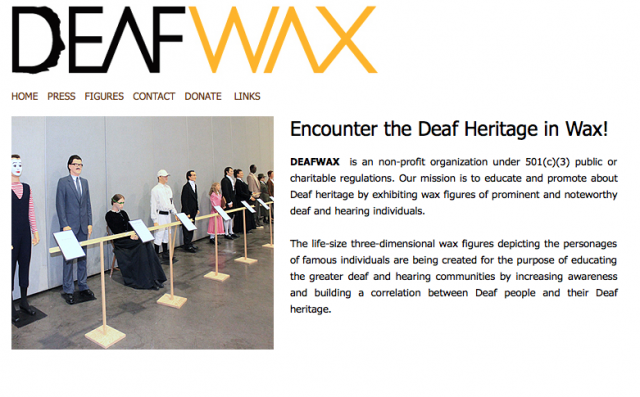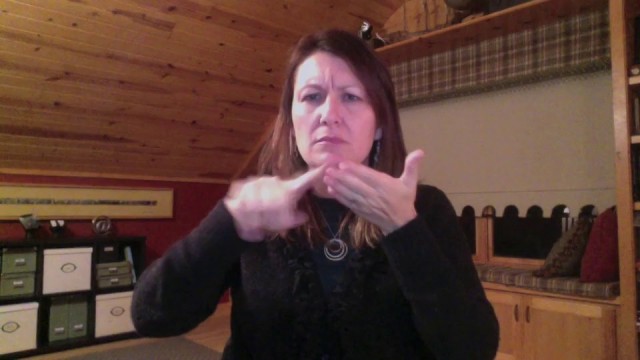Originally appeared in Silent News, November 2001.
I never really got to know the Julius Wiggins of Silent News fame. When I first met him in the summer of 2000, he was already in the advanced stages of his illness. Harriet faithfully brought him to the office on a daily basis, and he had a big smile for anyone that walked into the Silent News office. He was always happy to see us. But I never knew him when he was agile and healthy.
Julius Wiggins is a name I have always known. The newspaper is older than me by a few years, so I’ve never known a life without Silent News. I grew up with the newspaper, and inadvertently the Wiggins name.
Now, in my second year with the newspaper, I have come to realize just how much of an effect Julius, and his wife Harriet, truly has had on the deaf community. Every event I went to, every gathering I attended in the past year – there were people coming up to me and asking, “How is Julius?” And they weren’t asking just for the sake of conversation. They truly cared about Julius.
When Julius had the idea of forming Silent News, he didn’t do it to make money. He didn’t do it to create a legacy. He didn’t do it for anything except to try and make communication between deaf people easier.
Back in those days, newspapers consisted of social gossip and event information. He simply wanted a better way for people all over the country to learn about each other’s lives, milestones and happenings. The first issue of Jan. 1, 1969, said, “The Silent News came into existence because of the deaf’s demanding needs of a newspaper in New York City and other cities as well.” A subscription cost $3.60 per year back then.
Nearly 34 years later, communication in the world is at its most powerful, yet the newspaper is still a valuable commodity.
Over the past decade, the deaf publications world has seen a lot of muckraking, a lot of sensationalism, and a lot of deep, embittered politics behind the scenes. Silent News has been directly hit by these incidents and publications. I even worked as a writer for one of the publications that helped “hurt” Silent News indirectly (although not deliberately). Today, most of the mudslinging between publications has calmed down – and hopefully, the deaf newspaper business has cleaned up a little.
I’ve listened to story after story about the experiences of those first years, the peak years, and the recent years before I came on board. And one thing was consistent in these stories that I heard: Julius wanted nothing but the best for our community.
I’ve listened to Harriet and his daughter tell me about the years of struggle when all the other deaf publications were battling mighty and proud. They’ve told me of the sweat and toil of the first years, the determination of the later years, and now the years of pure love and loyalty to the newspaper today. “How can we give up the dream Julius had?” Adele is always saying to me in the office. “The newspaper is in our blood.”
We find ourselves transported back to Jan. 1, 1969, when the newspaper was founded solely to communicate with each other, not for profit or for reputation or for malice. Silent News has attempted to return to the days of honest, clean journalism. While the newspaper is still far from perfect, we’re very proud of how far we’ve come in a year.
We do this simply because we want to ensure that we continue Julius’s dream of bringing the deaf community together through news.
We hope to help this dream go on by adding a youth section – introducing our deaf youth to the world of deaf and hard of hearing achievements, events and people. One of these children– like I did when I was in high school – might read Silent News and want to become a writer, or even editor in chief, some day.
People have often asked me why I don’t work for a hearing newspaper, or why I choose to stick with a deaf publication. I tell them that working for a deaf newspaper, for me personally, holds far more prestige than a hearing publication. How can I not give back to the community that gave me what I have today? Without the deaf community, I wouldn’t be who I am. My way of giving back is to work for the very publication that brought me here today.
Perhaps I did know the real Julius Wiggins, after all.
Copyrighted material. This article may not be copied, reproduced, or redistributed without the written consent of the author.


